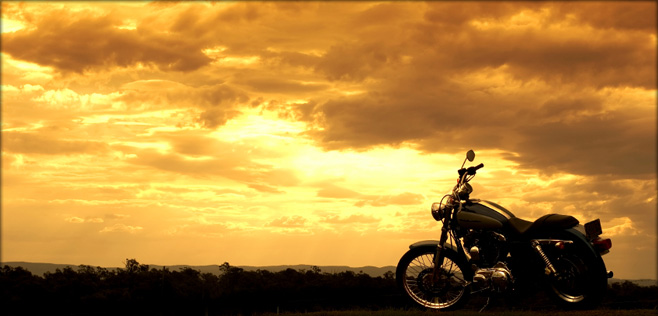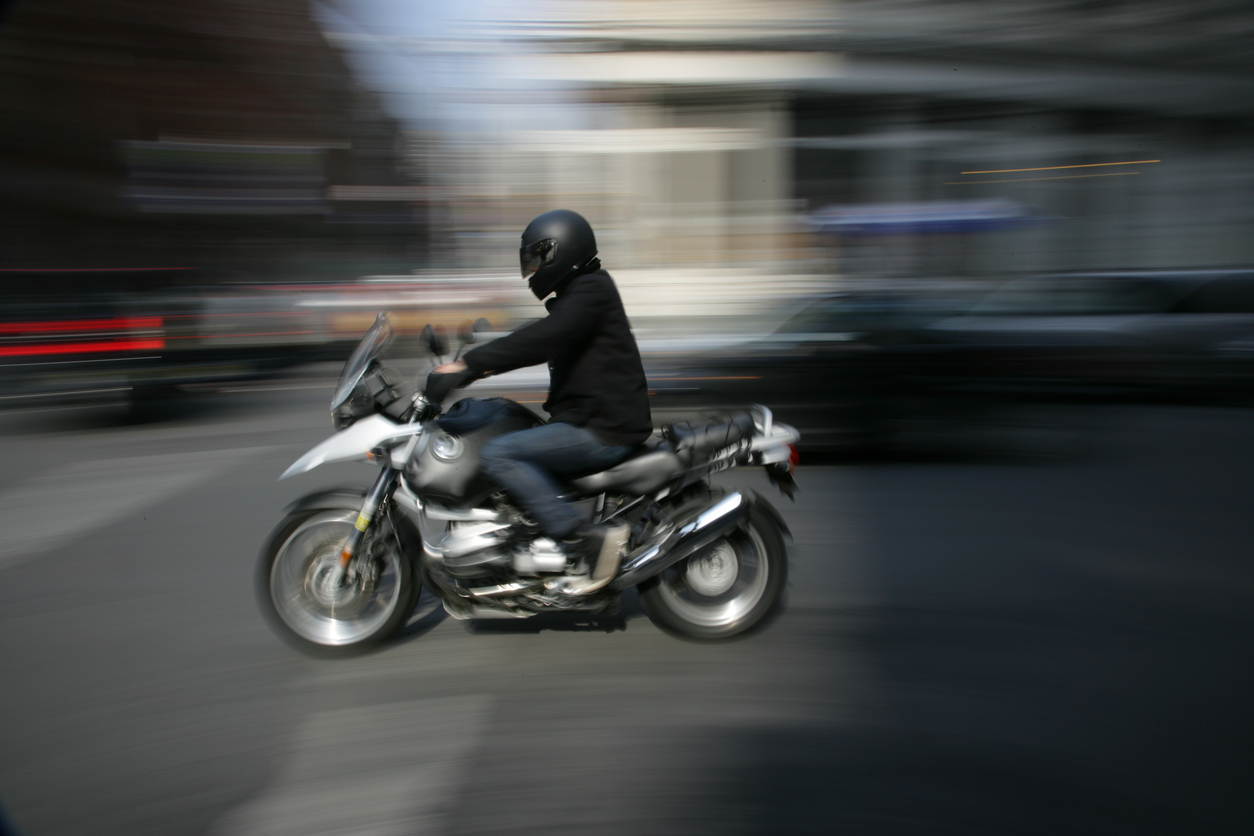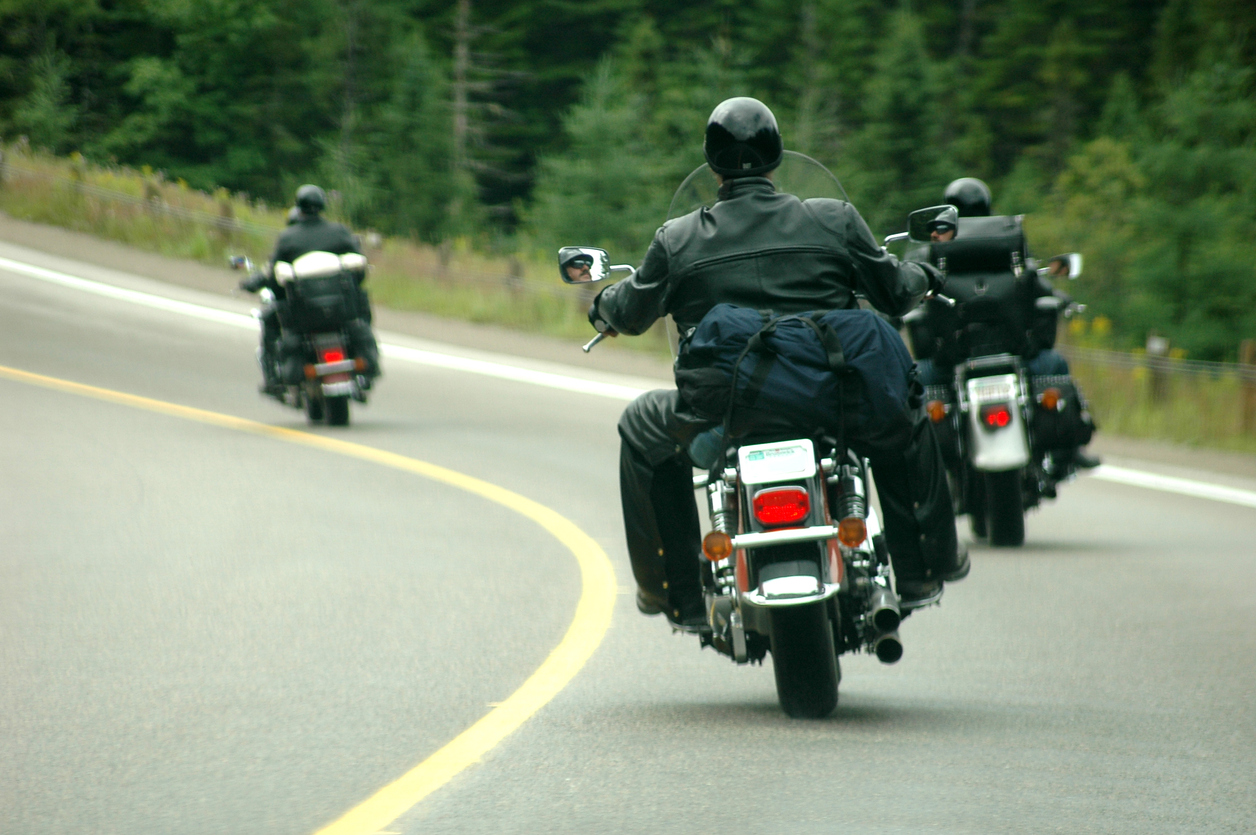Motorcycle Accident Lawyers in Denver, Colorado
Table of Contents
ToggleMotorcycle accidents are far more likely to result in serious injury and death than any other form of a motor vehicle accident. If you have been involved in an accident while on your motorcycle or were involved in an accident due to the negligence of an individual on a motorcycle in Colorado, it is very important to contact an experienced motorcycle accident lawyer in Denver as soon as possible after your accident.
You may be prohibited from filing a negligence lawsuit for your injuries sustained as a result of a motorcycle accident after a certain period of time has passed. According to the Colorado Revised Statutes § 13-80-101, the statute of limitations, or SOL, for most motor vehicle accidents involving personal injury is three years. A statute of limitations bars an individual from filing a lawsuit for damages against a negligent party after a specified period of time has passed. Since this is such a short period of time, it is very important for you to contact an experienced motorcycle accident lawyers in Denver, Colorado as soon as you have been involved in a motorcycle accident.
Lawyer for Motorcycle Accidents in Denver, Colorado
Contact Donaldson Law, LLC if you have been injured in a motorcycle accident in the greater Denver area, including Boulder, Longmont, Lakewood, Arvada, Aurora, Thornton, Westminster, Centennial or Littleton. Attorney Jennifer L. Donaldson will make every effort to hold the at fault party accountable for all of the injuries, damages, and losses you have suffered as a result of that driver’s negligence.
She will thoroughly investigate each crash by interviewing police officers and witnesses and hiring experts, such as, investigators or accident reconstructionists to examine the debris, skid marks, the vehicles and any other evidence available to accurately determine how the motorcycle crash occurred to help overcome matters of prejudice and perception that may be a challenge at trial. Call Donaldson Law, LLC at (303) 458-5000 today for a free consultation about your motorcycle accident claim.
Causes of Motorcycle Accidents in Denver, Colorado
As the interest and popularity of motorcycles increases, more and more people are injured due to accidents involving motorcycles. Motorcycle accidents can generally occur for any of the following reasons:
- Speeding:
- Driving distracted;
- Driving while texting or talking on a cell phone;
- Driving while under the influence of drugs or alcohol;
- Driving with road rage;
- Entering a highway or major roadway;
- Failure to abide by traffic signs or signals.
- Failure to yield the right of way of another vehicle;
- Rear-end collision;
- Reckless driving;
- Sideswiping when changing lanes or merging; and/or
- Turning into the path of oncoming traffic or a motorcycle.
A vast majority of motorcycle accidents result in physical or bodily injury as opposed to just property damage as is often the case with car accidents. Even if the motorcyclist is wearing a helmet or protective gear, they are more likely to suffer from serious injuries.
Some of the most common motorcycle injuries can include, but are not limited to:
- Back or spinal cord injuries;
- Traumatic Brain Injury (TBI);
- Head injuries;
- Broken or fractured bones;
- Contusions;
- Disfigurement;
- Internal organ injuries;
- Paraplegia;
- Quadriplegia;
- Road rash; or
- Severed limbs.
Motorcycle Accident Claims in Denver, Colorado
If you have been involved in a motorcycle accident, it is important to consult with an experienced motorcycle accident attorney in Denver before contacting any insurance company. The negligent party’s insurance provider may attempt to dispute your claim or not pay the full amount of the claim. It is also important not to sign any documents, give a recorded statement, or agree to a settlement amount before consulting with your motorcycle accident lawyers in Denver, Colorado.
Quite often insurance companies will take a lengthy period of time to process your claim after an accident involving a motorcycle, and may ultimately deny your injuries or medical bills. Contacting an experienced motorcycle accident lawyer in Denver, Colorado immediately after your crash can help you avoid much of this frustrating and exhausting process. Your motorcycle accident attorney in Denver, Colorado will fight for full and fair compensation for your motorcycle accident.
Injured in a Motorcycle Accident? Claim Your Compensation Now!
Call Donaldson Law, LLC at (303) 458-5000 to schedule a free confidential consultation today.
What If I Was Injured In a Motorcycle Accident And Am Not a Colorado Resident?
Many motorcyclists in Colorado come from other states, whether they are on cross-country travel or have specifically come to Colorado to ride. However, if you are an out-of-state visitor, you may not file a lawsuit in your home state. Colorado courts have jurisdiction over lawsuits arising from an accident that occurred in Colorado.
Under Colorado law, district courts have jurisdiction over any civil action that involves more than $15,000 in damages. There are 22 judicial districts, each with jurisdiction over certain counties.
Colorado Rules of Civil Procedure Rule 98 governs venue, which is where the lawsuit must be filed. Under that rule, the lawsuit must be filed in the district court that covers:
- The county where the defendant, or person being sued, resides;
- The county where the plaintiff, or person suing, resides, if the defendant can be served in that county;
- If the defendant is not a resident of the state, any county where the defendant can be found; or
- The county where the tort was committed, meaning where the accident occurred.
For instance, if the accident occurred on the streets of Denver, you could file in the Second Judicial District. If it happens while riding along I-70 near Silverthorne, you could file in the Fifth Judicial District, whose jurisdiction includes Summit County.
An experienced motorcycle accident lawyer in Denver, Colorado, such as Jennifer Donaldson, knows the proper venue for your motorcycle accident case and has the best understanding of how Colorado’s laws affect your claim.
If you are back in your home state recovering, Jennifer Donaldson will do everything possible to ensure you do not have to travel back to Colorado to handle any aspect of the lawsuit. Most out-of-state clients are able to recover for their losses without having to travel at all.
Injured in a Motorcycle Accident? Claim Your Compensation Now!
Call Donaldson Law, LLC at (303) 458-5000 to schedule a free confidential consultation today.
What if I wasn’t following motorcycle safety regulations in Denver, Colorado?
Colorado law has restrictions and requirements that pertain specifically to motorcycles:
- R.S. § 42-2-103 requires anyone operating a motorcycle to have a motorcycle endorsement on their driver’s license;
- R.S. § 42-4-1502 requires anyone operating a motorcycle to:
- Ride it sitting on the seat, with one leg on each side;
- Not carry a package or otherwise doing anything that would prevent them from having both hands on the handles;
- Not carry a passenger in a way that interferes with the ability to operate the motorcycle;
- Ensure all passengers younger than 18 are wearing helmets;
- R.S. § 42-4-232 requires anyone operating a motorcycle to wear goggles or glasses with lenses made of safety glass or plastic.
Additionally, motorcyclists must follow the same rules of the road pertaining to other drivers.
Nobody is perfect, and an accident victim may have inadvertently broken a safety law or otherwise done something that contributed to the accident. However, this fact does not mean that the victim cannot recover. Colorado has a “modified comparative negligence” rule. As long as the plaintiff’s own negligence was not equal or higher than the defendant’s, he or she can recover. Any negligence, however, will offset how much he or she can recover.
Motorcycle Helmet Laws in Denver, Colorado
The 1966 Highway Safety Act authorized the Secretary of Transportation to withhold up to 10 percent of a state’s federal highway construction funds if a state did not adopt certain safety regulations, such as a universal helmet law. Within the next 10 years, 47 states including Colorado had enacted universal helmet laws. By 1975, the Highway Safety Act was amended to eliminate the transportation secretary’s ability to use federal highway funds as leverage against states.
Two years later, Colorado and several other states repealed their helmet laws. In 2007, Colorado added a provision requiring riders younger than age 18 to wear helmets.
Opponents of helmet laws argue that personal freedom often associated with motorcycles is contradictory to a mandate on wearing a helmet and other safety gear. Although the American Motorcyclist Association (AMA) encourages motorcyclists to use protective gear including helmets, it opposes legal statutes requiring riders to wear them. Some motorcyclists point out that helmets can actually cause problems by making it harder for them to hear their surroundings.
Others push for universal helmet laws by arguing that helmets can save a rider’s life or prevent serious injuries during a crash.
Recent statistics from the Insurance Institute for Highway Safety show that in 2015, 103 people died in Colorado in a motorcycle accident. That number represents 19% of all road deaths in Colorado in 2015.
Contact a personal injury attorney in Denver, CO, to find out how the fact that you were not wearing a helmet might impact your personal injury lawsuit in Colorado.
Popular Motorcycle Routes in Denver, Colorado
Some people may simply enjoy riding the highways through Colorado, including I-70 or I-76. The Colorado Tourism Office also lists 10 popular motorcycle routes, including:
- Mount Evans Scenic and Historic Byway, from Idaho Springs to Mount Evans;
- Trail Ridge Road Scene and Historic Byway, from Estes Park to Grand Lake;
- Santa Fe Trail Scenic and Historic Byway, from Trinidad to Lamar;
- San Juan Skyway Scenic and Historic Byway, including Cortez, Telluride, Placerville, Ridgway, Ouray, Silverton, and Durango;
- Unaweep/Tabeguache Scenic and Historic Byway, from Whitewater to Placerville;
- Frontier Pathways Scenic and Historic Byway from Pueblo to Westcliffe to Colorado City;
- Pawnee Pioneer Trails Scenic and Historic Byway from Sterling to Fort Morgan to Ault;
- Top of the Rockies Scenic and Historic Byway from Twin Lakes to Minturn;
- Independence Pass on Highway 82 from Glenwood Springs to Twin Lakes; and
- Los Caminos Antiguos Scenic and Historic Byway, from the New Mexico border to Alamosa.
A motorcyclist may be involved in an accident on any of these scenic routes. However, he or she may also be injured on the streets in and around Denver. In any crash resulting in injury, your motorcycle accident lawyers in Denver, Colorado will look to the cause of the accident and determine whether it occurred due to another party’s negligence. Negligence means the responsible party had a duty to act a certain way and failed to meet that duty.
Denver, Colorado Motorcycle Accident Resources
Live to Ride | Colorado Department of Transportation (CDOT) — Live to Ride is the motorcycle safety campaign administered by the CDOT. It is designed to “help motorcyclists of all skill levels ride safely, have fun, and most importantly, stay alive.” You can find a skill rating map of the state and learn more about the campaign on this website.
Let it Ride – CDOT
4201 East Arkansas Avenue
Denver, CO 80222
(303) 757-9383
ABATE of Colorado – ABATE stands for A Brotherhood Active Towards Education. Its Colorado chapter is a non-profit motorcyclists’ rights organization dedicated to preserving individual freedom and promoting safety. On this website, you can learn more about motorcycle training, motorcycle rights, and upcoming events.
ABATE of Colorado
1701 Chambers Road
Unit K
Aurora, CO 80011
(303) 789-3264
American Motorcycle Association (AMA) – Founded in 1924, the American Motorcycle Association (AMA) protects riders and the motorcycle lifestyle. The AMA provides several resources, including sanctioning safe motorcycle riding and recreational events.
How Can Motorists Help Keep Motorcyclists and Bicyclists Safe in Denver, Colorado?
There are several steps that motorists should take as they are driving to avoid accidents with motorcyclists and bicyclists.
First, drivers should always be careful when making turns. It may be difficult to spot an approaching motorcyclist or a bicyclist at times since they are much smaller than motor vehicles. Before turning at an intersection or into a driveway, drivers should check their mirrors and their surroundings for motorcyclists and bicyclists.
If motorists are traveling near a motorcyclist or bicyclist, it is important to leave plenty of space while passing. Motorists should also pass as slowly as possible.
Many roads have designated bike lanes for bicyclists. Motorists should be careful not to cross from their lanes into these bike lanes, as a serious accident could occur. It is also important for drivers to be aware of bicycle lanes when they are turning. If you are driving next to a bicycle lane, make sure to use your turn signal to let cyclists know you intend to turn and double-check your blind spots and side mirrors to make sure the bicycle lane is clear before you turn.
When sharing the road with bicyclists and motorcyclists, motorists should yield the right of way where necessary. These individuals have a right to use the road, just like those using motor vehicles, so they are entitled to the right of way in certain situations.
If a motorist has parked on the street, the motorist should always look in front and behind before opening the door to the vehicle. Many bicyclists have suffered serious injuries when they were struck by opening car doors.
When traveling in a residential area, or in an area with a school or park, motorists should be extra cautious. Children are much more likely to be using their bicycles in these areas and may not always look for oncoming cars.
If a motorist is traveling behind a motorcycle or bicycle, especially in rainy or snowy conditions, the motorist should keep plenty of distance from the motorcyclist or bicyclist. Due to their smaller size, motorcycles and bicycles come to a stop much more quickly than cars. If a motorist is following a motorcycle or bicycle too closely, that motorist may cause a rear-end collision if the bicyclist or motorcyclist stops suddenly.
Motorists must always check their blind spots before changing lanes or turning. It may not always be easy to spot a motorcyclist or bicyclist on the road, but a quick check of one’s blind spots may help a motorist avoid a serious accident.
At nighttime, motorists must be extra careful to look for motorcyclists and bicyclists. Many bicyclists do not have lights on their bikes, and motorcycles may not be immediately visible as they approach a vehicle.
Bicyclists and motorcyclists need to be able to anticipate a vehicle’s actions—so using a turn signal is a necessity. When bicyclists and motorcyclists see that a vehicle is planning to slow down and turn, they may adjust its speed and position accordingly.
At intersections, it is especially important for motorists to stop and look for oncoming bicyclists or motorcyclists. If these individuals are making a left turn, for example, they may be killed if they are struck by a vehicle.
The failure to follow these tips on sharing the road may lead to a serious accident.
Call Our Denver, Colorado Motorcycle Accident Lawyers at Donaldson Law, LLC For Your Free Consultation Today
Were you injured or was your loved one killed in a motorcycle crash in Colorado? You should seek legal representation to help to obtain full and fair compensation.
Donaldson Law, LLC represents auto accident victims all over Denver County as well as communities in Jefferson County, Denver County, Boulder County, Arapahoe County, and Adams County. Call (303) 458-5000 or submit an online form right now to set up a free, no-obligation consultation that will allow Denver personal injury lawyer Jennifer Donaldson to evaluate your case.
Motorcycle Accident FAQs
What should you do after a motorcycle accident in Colorado?
If you are physically able to call 911, do so right away to ensure you get the medical care and police support you need to pursue the best outcome for your recovery.The police officer(s) will complete a police report outlining how they believed the crash occurred and who was at fault. The report will also include all contact information, driver’s licenses, registration, and insurance information. If there were witnesses at the scene, the police will also take their statements.
If you can remain at the scene, take pictures of the collision, and crash scene, including any skid marks — or lack thereof — traffic direction/patterns and write down how the crash occurred, so the details do not become hazy later.
Once the report is completed, seek medical care for your injuries right away. Once you are stable, contact our experienced motorcycle accident attorneys in Colorado to review your case. If your case is eligible, we will take the lead in pursuing the financial recovery necessary from the at-fault driver’s insurance company.
How can I prove my Denver motorcycle accident was not my fault?
The accident scene, vehicle damage, witness statements, and evidence collected by investigators will outline who was at fault for a motorcycle accident. In some cases, there may be video footage of the crash that will provide compelling evidence of exactly how the crash occurred.Partnering with a skilled motorcycle accident lawyer in Denver will provide the resources you need to obtain valuable evidence to help prove your collision was the other driver’s fault.
What type of compensation should I request for my injuries?
All personal injury cases, including motorcycle accident claims, are unique. That means your overall recovery needs will differ from another accident victim’s needs. However, some of the same compensation requirements may apply.That may include financial compensation for:
- Current and future medical expenses
- Lost wages and diminished earning capacity
- Pain and suffering or mental anguish
- Permanent physical impairment
- Property damage
How long will it take for my Denver motorcycle accident case to get resolved?
The amount of time it takes to resolve a motorcycle injury case can vary, depending on the severity of the injuries, the length of the recovery, and the time it takes to negotiate with the insurance company. Most personal injury cases are resolved during negotiations, as fewer than 5% of all personal injury cases go to trial. However, if the best legal course of action is litigation, the case will continue for longer than one that reaches a settlement with the insurance company before a lawsuit is filed.
How much time do I have to file a claim after a bike accident?
Motorcycle accident victims have three years from the date of the crash to pursue a personal injury claim against the at-fault party.
What if I was injured in a motorcycle accident and am not a Colorado resident?
Generally, a motorcycle accident occurring within Colorado will be handled according to the state’s accident and insurance rules, even if the harm occurred to a resident of another state. To pursue a case involving a crash that occurred in Colorado, you will need the assistance of a personal injury lawyer who is licensed to practice law in Colorado.
How can a motorcycle accident lawyer help with my case?
A Colorado motorcycle accident attorney can help provide the legal and investigative resources an injury victim needs to build their case for success. That includes uncovering the necessary evidence to hold the at-fault driver liable for the crash, outlining all medical needs and financial recovery requirements, and negotiating with the insurance company to pursue the best outcome.




















